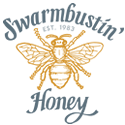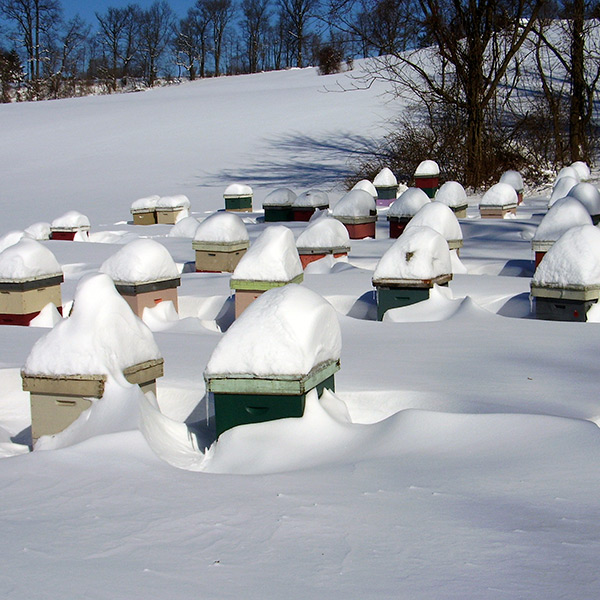
A Note from Walt
Winter is a chill time for our honeybees as they anxiously await the turning of the seasons, and the beekeepers may well bee chillin’, having done their best readying their bees for this season. It is also a time for reflection of the past season and preparation of the year to come.
The season of 2009 was as interesting as a maiden roller coaster ride with its ups and downs. The season began with a rising honey flow that then fell to rainy weather, only to rise again with the arrival of fall.
By stimulating our colonies very early in the spring, our bees were ready when the first honey flow presented itself. The populations were xtremely strong, and we were adding honey supers to the hives in a rather aggressive manner. The bees responded by filling the supers with honey, and we kept adding supers or “supering up” as need bee.
The hives grew into ‘towers’ as our super supplies dwindled, and we were left scrambling for more honey supers. We were anticipating a record-breaking year, and with hives that were bubbling over with bees, we needed to stay focused on spring management. Our preferred method of swarm prevention employs passive ‘splitting’ of the hives. This practice increases our hive numbers, and consequently requires additional brood supers. We purchase our woodenware from Isaac Zook at Forest Hill Woodworking. The following conversation portrays how this Amish woodworker beecame my stock broker as we ascended. “Well, not so much need for the honey supers that we ordered last week, but instead double the brood supers that we talked about.”
Life was good thru May, but then came June, as it always does. However, June ’09 was far wetter than any recent recollection. With massive populations and minimal flight time, ‘the girls got into mischief.’ Well, they needed food, and their solution was to move up into the honey supers of ‘surplus’ honey. The honey supers beecame the nursery, and we spent most of June making corrections, by reintroducing the queen down to the brood supers, and inserting queen xcluders beelow the honey supers for production. Queen xcluders beecame necessary far earlier than expected during this tumultuous season, but the roller coaster ride continued.
July and August in Chester County is normally a time of nectar dearth; however, sufficient rainfall extended the honey flow. We were very fortunate to harvest an average yield of seventy-five pounds per hive during a wetter than normal season. This is substantially lower than the yields we have grown accustomed to. Such is farming.
We did xtremely well with bee pollen production, and plans are underway for increasing the number of colonies in our pollen yards. Our marketing of fresh bee pollen has extended coast to coast, and has been endorsed by bee pollen enthusiasts nationwide.
We anxiously await to see what twenty ten has in store for our beeloved honeybee.
The Swarmbuster

